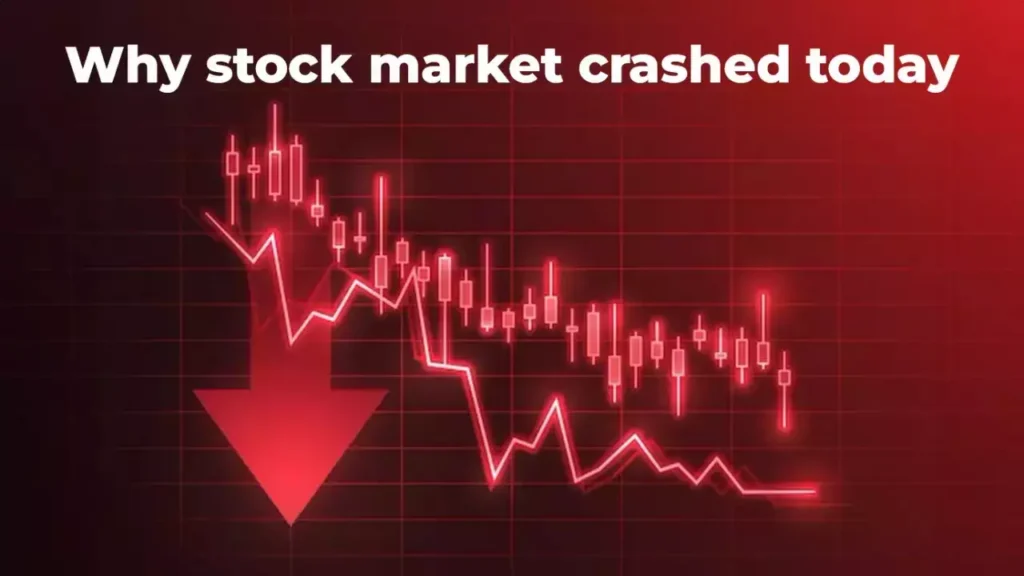Indian stock markets witnessed a sharp and sudden sell-off on Monday, triggering widespread panic among investors. The BSE Sensex nosedived over 3,200 points, while the NSE Nifty50 plunged below the 21,900 mark in what experts are calling one of the most dramatic single-day falls in recent months.
The freefall wiped out lakhs of crores in investor wealth, prompting concerns about both global and domestic headwinds. A combination of international uncertainty and local economic concerns contributed to today’s market meltdown.
Asian and European markets opened sharply lower, tracking overnight losses on Wall Street. Mounting fears of a potential recession in the U.S., coupled with fresh geopolitical tensions in the Middle East, led to a broad-based global sell-off. The ripple effects quickly reached Indian shores.
Former U.S. President Donald Trump, currently leading in Republican primaries, made fresh statements over the weekend suggesting he would impose hefty tariffs on imports if re-elected. His rhetoric sparked fears of a looming trade war, negatively impacting investor sentiment across emerging markets, including India.

Recent economic indicators have shown signs of a slowdown in India’s manufacturing and services sectors. The March PMI data, released late last week, pointed to declining demand and softening business confidence. Investors are increasingly cautious about the sustainability of corporate earnings growth.
Foreign institutional investors (FIIs) pulled out significant capital from Indian equities amid global uncertainty. Data from exchanges showed net FII outflows of over ₹4,000 crore in a single session — adding to the pressure on benchmark indices.
On the technical front, both Sensex and Nifty breached key support levels early in the trading session. This triggered stop-losses and algorithmic selling, exacerbating the fall. Retail investors also rushed to exit positions, contributing to the volatility.
Market analysts are advising caution in the short term, urging investors not to panic and to avoid hasty decisions based on day-to-day movements. “This kind of correction, though painful, can also offer long-term buying opportunities,” said Ramesh Shah, a Mumbai-based financial advisor.
As markets continue to react to global cues and political developments in the U.S., investors will be closely watching central bank commentary and corporate earnings in the coming weeks.
Also Read : Markets Plunge as Trump Tariffs Cause ₹20 Lakh Crore Loss in Just 10 Seconds















 Categories
Categories









